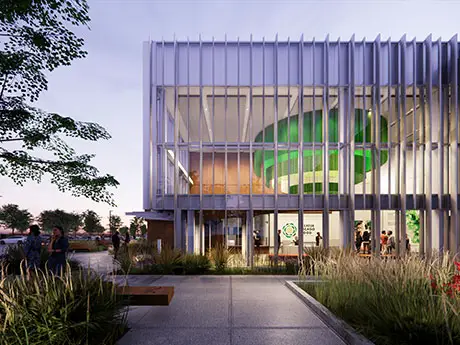The Greater Chicago Food Depository’s 37,000-square-foot addition has begun construction thanks to Skender. Families and people at risk of food insecurity can purchase food from the food bank on the Southwest Side of Chicago. The food bank’s current two-story office and warehouse will be complemented by the new building at 4100 W. Ann Lurie Place. Plans call for both a demonstration kitchen for nutrition teaching and a commercial kitchen for meal preparation and packing.
Also Read: Construction to resume on Obama Presidential Center project in Chicago
Every year, the Greater Chicago Food Depository wants to prepare and serve 2.5 million prepared meals to local residents. Early 2024 is the projected completion date. The project architect is Partners by Design. The Nourish Project, which was propelled by a $75 million capital campaign, has phases that include this most recent extension as well as upgrades that were finished in 2019.
Since its establishment more than 40 years ago, “The Greater Chicago Food Depository has been a light of hope. According to Justin Brown, President & CEO of Skender, “this expansion will allow the organization to offer 10,000 healthy meals each day while acting as a catalyst for economic impact through crucial collaborations with women- and minority-owned companies.
More on the Skender Food depository project
The Greater Chicago Food Depository’s executive director and CEO, Kate Maher, reports a 35% rise from the previous year. These figures are comparable to those recorded by the repository during the start of the COVID-19 pandemic. However, due to inflation, that 35% has a far greater effect this year.
“The current form of inflation is difficult not only because more people are visiting food pantries, but also because we are spending more money on the food that we must transport to those pantries. Therefore, we spend far more money on the food that makes up around 50% of what we distribute, according to Maher.

Leave a Reply